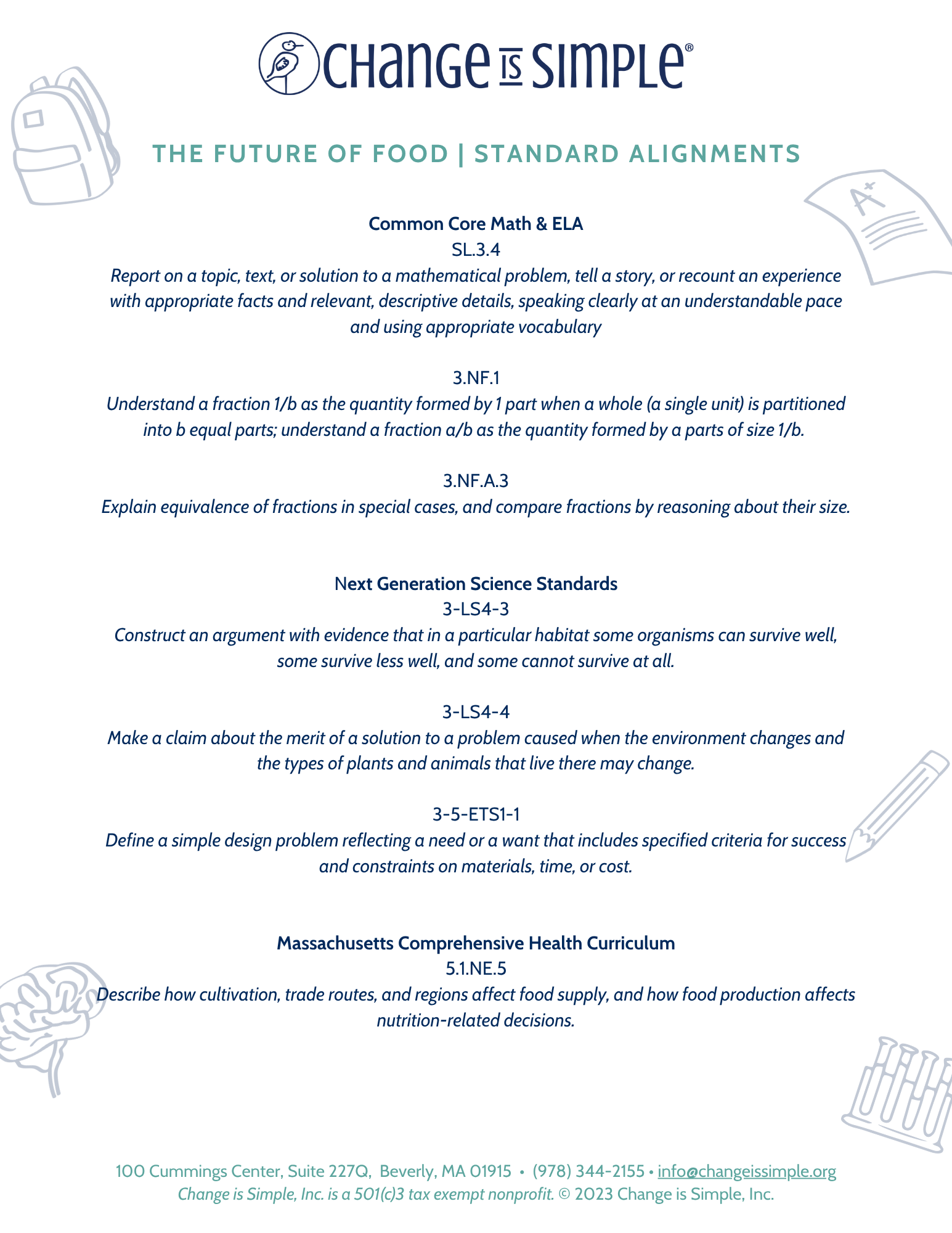The Future of Food
Lesson Objectives:
At the end of the lesson, students will...
Understand how climate change causes unpredictable weather
Explain the ways climate change impacts our food
Understand how climate change impacts Massachusetts
Essential Questions:
How does climate change impact farming?
Who is impacted by climate change?
How can we adjust farming practices to better fit a changing climate?
Explore our resources
Click on the images to access each resource (available as a PDF or webpage)
Take-Home Guide
Information for parents & legal guardians (available in English and Spanish).
Información para padres de familia y tutores legales (disponible en Inglés y Español).
Standards Alignments
Explore the ways our program aligns with CCSS + NGSS standards.
Vocabulary
Quiz your students on vocabulary used during our lesson!
Eat the Rainbow Activity
Have students design a plate full of different fruits and vegetables to illustrate the importance of eating and planting a variety of crops.
Social Emotional Learning
In this activity, students will watch a video and have a short discussion about food deserts and healthy eating!
Background Information
Climate change has brought about significant challenges for agriculture. Extreme weather events, such as droughts, floods, heatwaves, and storms, are becoming more frequent and severe, disrupting growing seasons and damaging crops. Rising temperatures and changing precipitation patterns also impact soil fertility, water availability, and pest and disease dynamics, further exacerbating the risks faced by farmers.
In response to these challenges, farmers are adopting new techniques and technologies to adapt to a changing climate. This includes the development and adoption of drought-resistant crops, precision agriculture practices, and other methods to enhance resilience and sustainability. Genetically modified organisms (GMOs) have emerged as a controversial but potentially transformative tool in addressing the challenges posed by climate change in agriculture.
GMOs are engineered to exhibit traits such as drought tolerance, pest resistance, and increased yields, offering the promise of more resilient crops capable of thriving in changing environmental conditions. While GMOs have the potential to increase agricultural productivity and reduce the reliance on chemical inputs, they also raise concerns about biodiversity, food safety, and the consolidation of corporate control over seeds and genetic resources. Thus, the integration of GMOs into farming practices represents a complex intersection of science, policy, ethics, and economics as society navigates the impacts of climate change on agriculture.









